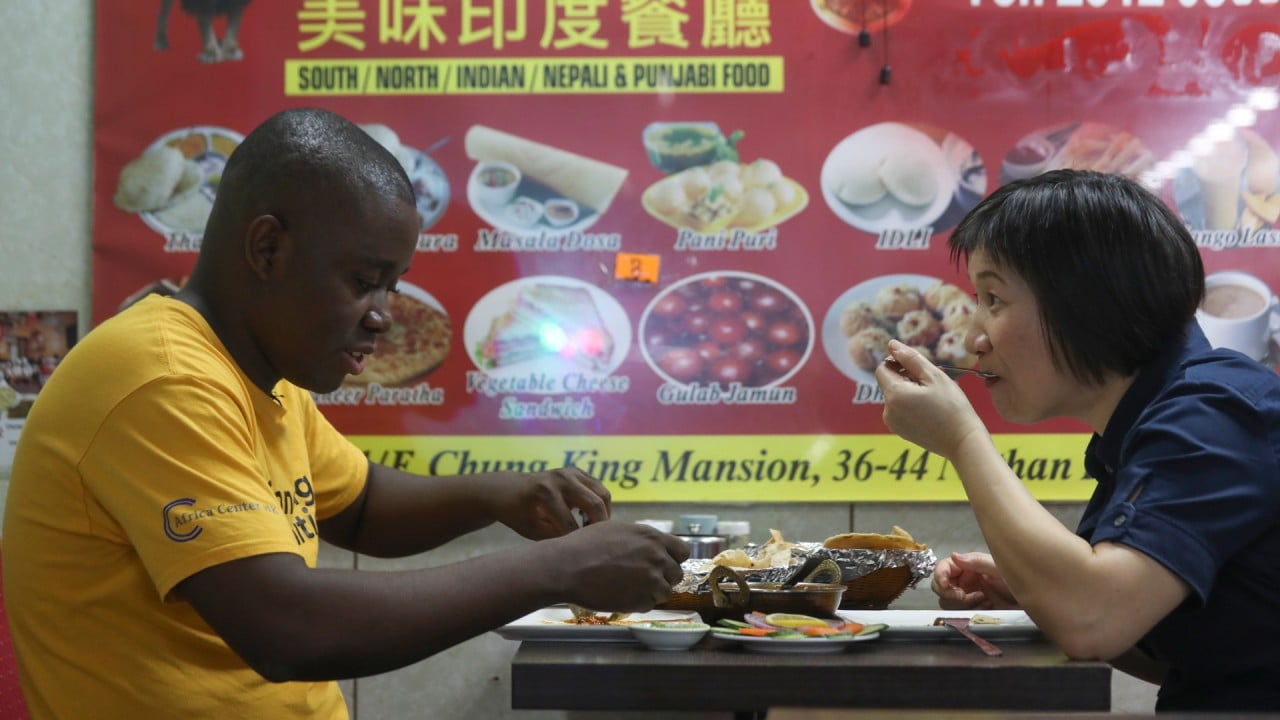An insider’s guide to dining in Hong Kong’s Chungking Mansions: curry, chicken kebab, an African rice dish to fight over – a food tour with refugee turned banker Innocent Mutanga
- Some Hongkongers have never ventured into Chungking Mansions, which opened in 1961. For others, it is home to their favourite restaurants and shops
- Innocent Mutanga, founder of the Africa Centre, takes us to three of his favourite places to eat – Ghana Locals, Sher-E-Punjab and Bismillah Kebab House

04:40
Where to eat in Chungking Mansions, Hong Kong’s iconic building of diversity
“Do you want curry?” asks a South Asian man handing out fliers to anyone approaching the famed Chungking Mansions in Hong Kong.
Many like him linger at its entrance, promoting restaurants and shops within the complex – famed for its cheap accommodation, goods and food – on Nathan Road in Tsim Sha Tsui.

People from across South Asia and various African countries live and work in the complex.
“The immigration officer asked me, ‘Where are you going to stay? Which hotel?’ I didn’t really know,” he recalls. “I think she was just like, ‘Oh, are you going to Chungking Mansions?’ But, for me, I didn’t think I could afford a mansion. When I arrived, I was like, ‘Oh what a mansion. It’s a very different type of mansion.’”
